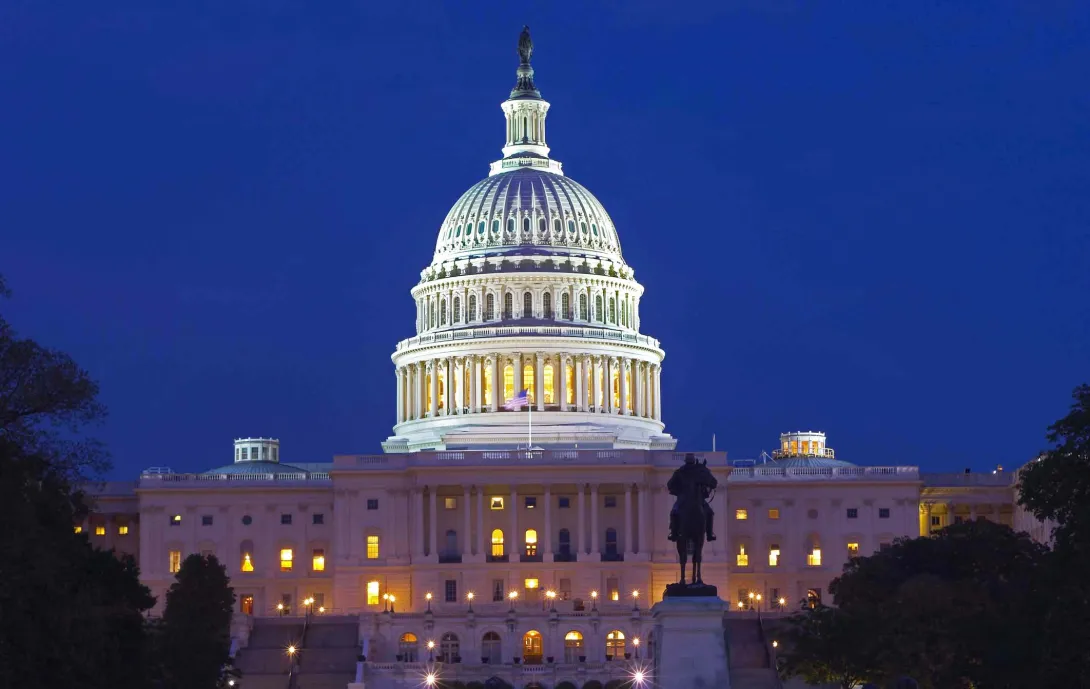
Photo: Jeremy Walke/Getty Images
House Republicans' previously proposed budget looked at $880 billion in spending cuts from programs overseen by the House Committee on Energy and Commerce.
Committee oversight includes Medicaid, the Children's Health Insurance Program and Medicare. Ranking member Frank Pallone Jr., D-N.J., and Rep. Brendan F. Boyle, D-Pa., ranking member for the Committee on the Budget, had asked the Congressional Budget Office for projections on mandatory spending over the next nine years for programs, excluding Medicare, that are the jurisdiction of the House Committee on Energy and Commerce.
The Congressional Budget Office answered in a March 5 letter.
CBO's baseline budget projections show mandatory outlays for these programs will total $8.8 trillion between 2025 and 2034. Medicaid accounts for 93% of the total, at $8.2 trillion.
Other programs within the committee's purview include the risk adjustment program, in which health insurers either make payments to the government or receive payments, depending on the health of their enrollees. But this program is budget-neutral.
This means that if Republicans want to move forward with the $880 billion in cuts from programs overseen by the Energy and Commerce Committee, it can't be done without slashing Medicaid.
WHY THIS MATTERS
A budget needs to be passed and signed by President Trump by Friday to avoid a government shutdown.
Currently, the budget before the House is a stop-gap spending bill introduced by House Speaker Mike Johnson, R-La., on Saturday. The continuing resolution (CR) would keep the government running through the end of September. Trump reportedly supports the CR.
The CR includes no disruption in Medicare, Medicaid or Social Security benefits, according to Newsweek. However, some Democrats fear the bill is a blank check, giving President Trump and Elon Musk, who runs the Department of Government Efficiency, or DOGE, discretion over spending, according to AP.
A House vote is expected today. If it passes the House, the bill needs bipartisan support in the GOP-controlled Senate, where 60 votes are required for passage. The Senate has 53 Republicans, 45 Democrats and two independents.
THE LARGER TREND
The bill would also postpone for a year scheduled reductions to the Medicaid Disproportionate Share Hospital program. This date would move from 2027 to 2028.
The CR also extends telehealth through 2025. The Centers for Medicare and Medicaid Services first made telehealth flexibilities possible under the COVID-19 Public Health Emergency. CMS had extended the flexibilities used by hospitals, physicians and for home health services past the end of the PHE, but congressional action is needed to get them extended further past a March 31 deadline.
Email the writer: SMorse@himss.org